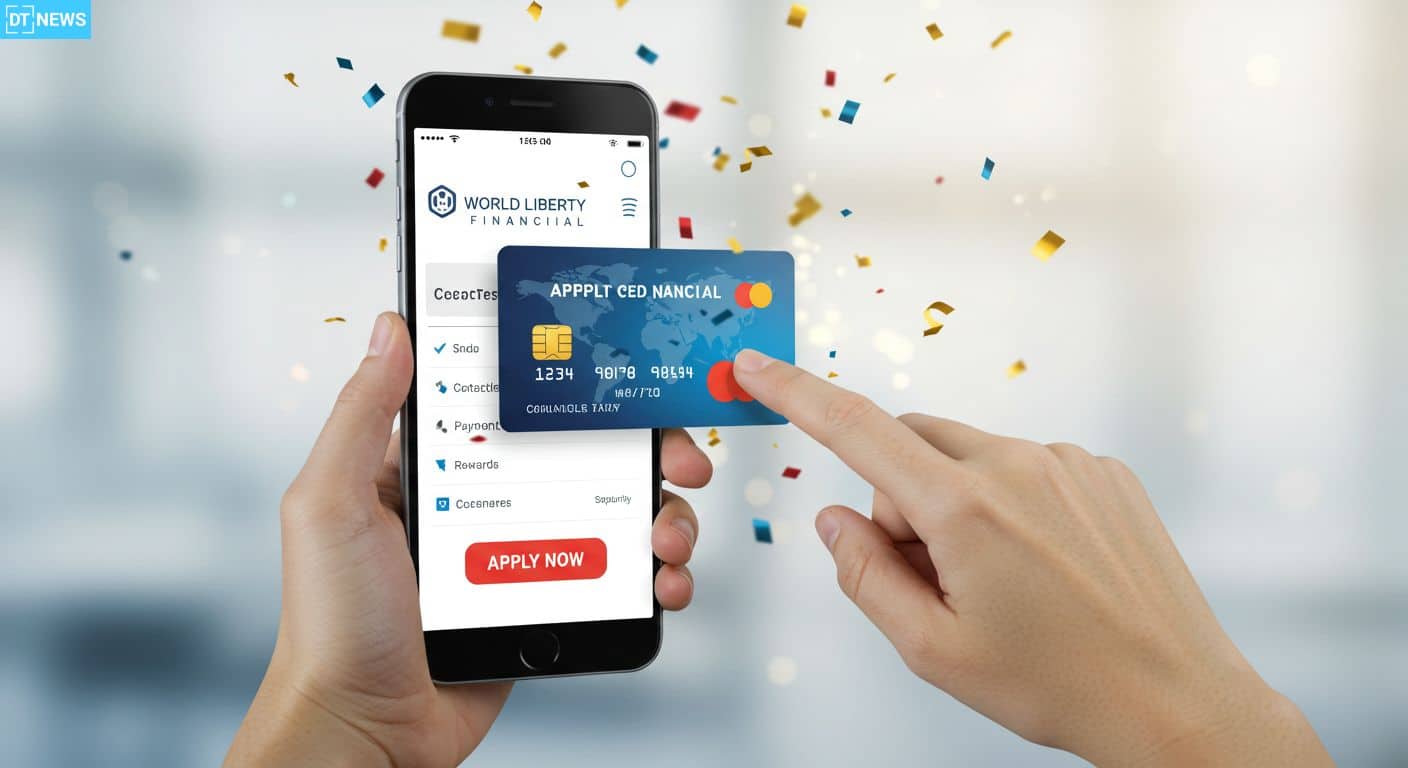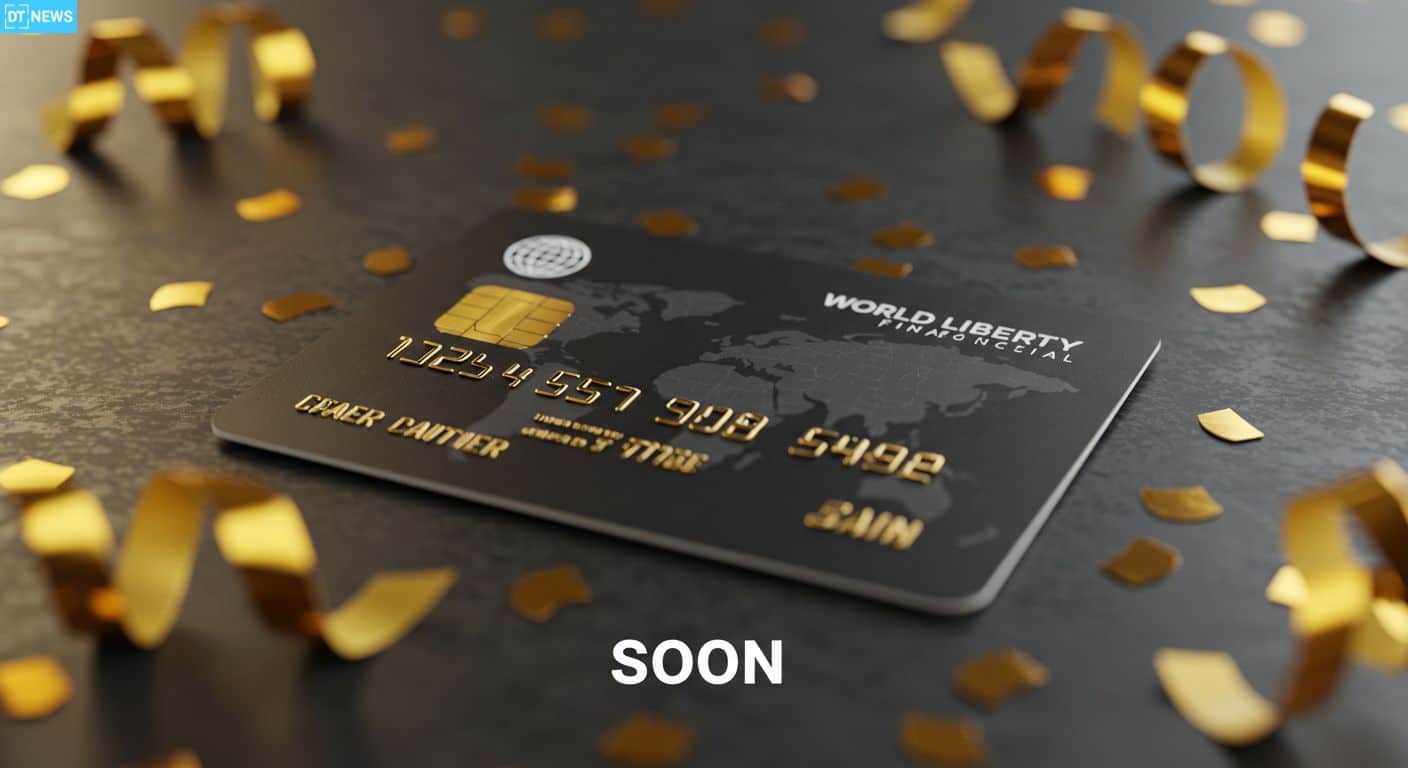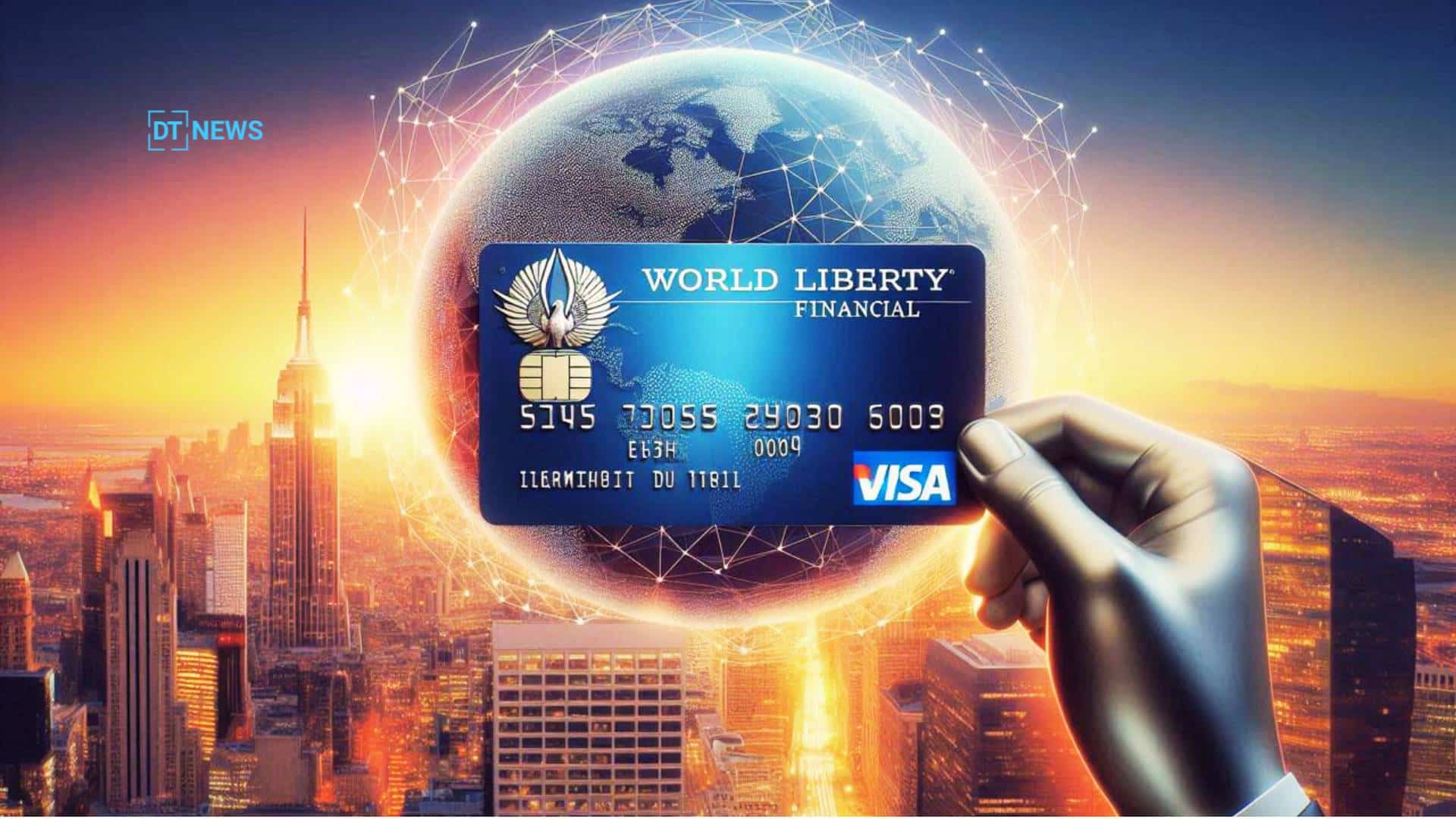According to latest reports, World Liberty Financial, has announced at Korea Blockchain Week 2025 that it will launch a World Liberty debit card and consumer retail app soon. Executives say the products will plug the firm’s USD1 stablecoin into everyday payments so users can spend, transfer and trade in one mobile interface.
This follows earlier moves by World Liberty to mint a USD-pegged stablecoin and raise funds through governance token sales and is as the company explores a partnership with South Korea’s Bithumb exchange.
What World Liberty Is Building and Why It Matters
World Liberty debit card will be a bridge between its stablecoin, USD1 and everyday payments rails. The company says the card will integrate with major mobile wallets like Apple Pay so users can spend USD1 at merchants that accept contactless payments.
The retail app is a hybrid product that will allow peer-to-peer transfers, wallet management and simple in-app trading so retail users can have one place to send cash-equivalent stablecoins or move into other crypto positions. Co-founder Zak Folkman announced the timeline at a Korea Blockchain Week panel and said consumer convenience is the top priority.

Also read: World Liberty Financial Mints $205M USD1 as Stablecoin Supply Climbs to $2.4B
USD1, Audit Plans and the Question of Trust
World Liberty has marketed USD1 as a dollar-pegged stablecoin backed by U.S. Treasuries, dollar deposits and cash equivalents. The company has previously said it will do periodic audits and custody arrangements to assure users and regulators that USD1 is fully collateralized.
Sources reported earlier in 2025 that World Liberty will do third-party audits and has spoken to established custodial services. That audit and proof-of-reserve narrative is important to any claim that a debit card funded by USD1 is safe for consumers and merchants.
Bithumb Memorandum and Global Expansion Signals
World Liberty also announced it signed a memorandum of understanding with Bithumb exchange to “explore business opportunities,” and the two parties held a signing ceremony as part of the Korea Blockchain Week program. The MOU is nonbinding; hence, the details are scarce.
If the partnership materializes, Bithumb’s large user base and local payment infrastructure could be a big distribution channel for the World Liberty debit card and retail app in a market where crypto is already popular. South Korea’s regulatory approach to crypto is strict but practical, and a local partner can help with licensing, KYC/AML, and connections to banking rails.
Consumer Product Design: How the Card and App Will Work
World Liberty’s public statements suggest the retail app will be a combined wallet, social payments app and trading interface. Users will be able to hold USD1, send peer-to-peer transfers, top up the debit card balance with USD1, and spend at merchant terminals via NFC or Apple Pay.
The company will not build a proprietary blockchain; instead, it will be blockchain neutral, issuing USD1 across networks and using established custody providers and payment processors for fiat and merchant settlement. That approach reduces the technical hurdle of convincing merchants to accept a new protocol while focusing on compliance and partner integrations.

Also read: WLFI Token Proposal Marks a Pivotal Moment for World Liberty Financial
Conclusion
Based on the latest research, the announcement of a World Liberty debit card and retail app “coming soon” is a switch from token sales to product delivery. Linking USD1 to everyday payments through a card and Apple Pay would be a big step towards mainstream crypto adoption if the Bithumb MOU leads to strong regional partnerships.
However, it should also be noted that the project has several hard requirements: third-party audits of reserves, approved banking and payment network integrations, regulatory clarity in each market, and careful management of the political and reputational risks of a family-backed, politically connected company.
For in-depth analysis and the latest trends in the crypto space, our platform offers expert content regularly.
Summary
World Liberty Financial is launching a debit card and retail app that will allow users to spend USD1 stablecoins via mobile wallets like Apple Pay. The company signed an MOU with South Korea’s Bithumb as it pursues consumer adoption. Success depends on independent reserve audits, banking and payments integrations and regulatory approvals.
Glossary
World Liberty Financial: The crypto venture founded by Trump family members that is developing the USD1 stablecoin and WLFI governance token.
USD1: World Liberty’s dollar-pegged stablecoin.
Debit card integration: The process of enabling a crypto-linked card to settle via traditional payment networks and mobile wallets like Apple Pay.
MOU (Memorandum of Understanding): A nonbinding document that signals intent to cooperate, often used as a first step before commercial agreements.
Reserve audit: An independent verification that a stablecoin’s claimed collateral exists and is held.
Frequently Asked Questions About World Liberty Debit Card
What will the World Liberty debit card do?
World Liberty says users will be able to link USD1 to a debit card that works with mobile wallets like Apple Pay, for contactless merchant payments and peer-to-peer transfers through their retail app. Details are limited until the product launch.
Is USD1 audited and safe to use?
World Liberty will publish audits and use custodians for reserves. They announced audit plans in 2025 but users should review the actual audit reports and custodian arrangements when published.
Does the Bithumb MOU mean the card will launch in South Korea first?
The MOU is nonbinding and means they will explore opportunities with Bithumb. If commercial and regulatory conditions align, South Korea could be an early market but that depends on further agreements and approvals.
When will the debit card and app actually launch?
Company executives said “very soon” at Korea Blockchain Week 2025, as no exact date has been published.



















































































































